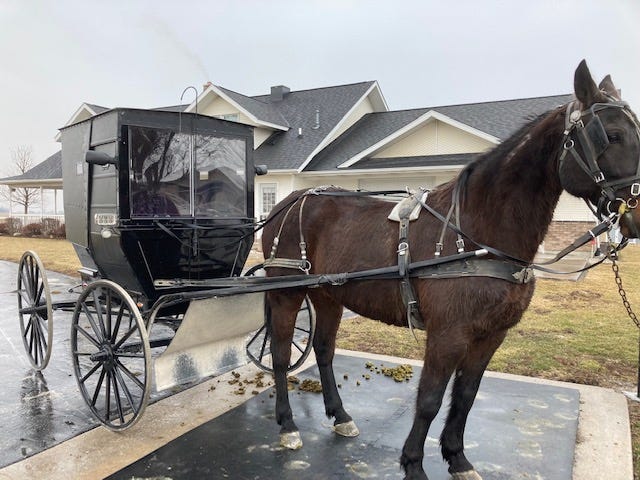Today I watched a video of a trans adolescent in tears, reporting bullying.
“They said I was disgusting. They said I shouldn’t exist. They spewed hateful, horrible words at me. And I didn’t say anything. I was too angry, too afraid to do anything. But I’m not disgusting and I do have a right to exist.”
Here we go, the presidential campaigns ramping up, one political party fighting another with negative ads and issues, taking a deep dive into the culture wars. The United States has a rich history of democracy, a model for the world, but why do we play out our strength in the ditch? Why do we inevitably pick on marginalized people, whether immigrants, people of color, women, the disabled, gays, lesbians, or transgender people? In turn, why do we stereotype fundamentalists and rural people? Both parties know that people want to feel superior to someone. Scapegoating has been an age-old manipulative political ploy. Do we really need such polarized political parties dueling away with each other in the muck and mud?
One year when I was in academe, we were headed into the election of a new department chair. Antagonisms, old wounds, long histories of rivalries, lobbying efforts, and backroom arm-twisting were all in full force. I hated walking through the hallway. You could feel the tension stick to the blackboards in the classrooms.
“Do you know how the Amish elect their bishops?” I offered to my colleagues.
Amish bishops are the authority figures for each church district. They serve as the minister and interpreter of the rules for the community. Bishops have a great deal of power, but they also carry a great burden. They preach every Sunday, for every wedding and funeral, and attend to the sick and the poor. They arbitrate disputes and keep everyone on track living lives in accordance with a common belief system. At the same time, the bishops attempt to maintain their own families and farms. It’s a big, exhausting job.
Upon the death of a former bishop, the Amish call a meeting to elect a new one, an elder stationed at the door. The members of the community enter the room, whispering the name of a nominee into the elder’s ear. Then the nominees are all called forward, gathering around a table where an equal number of Bibles are placed. A slip of paper is dropped inside one of the Bibles, then the elder mixes them up, slipping and sliding the sacred books around the surface of the table until no one knows where the paper has gone.
The nominees draw Bibles, and the one who finds the piece of paper inside, is named bishop. For life.
Finally, the whole community lines up. One by one, they approach the new bishop, shake his hand, congratulating him and telling him how sorry they are that he got the job.
“Why don’t we try something like that?” I asked the department.
My colleagues laughed.
“Swander wants to change the whole system,” one colleague chuckled.
That’s right. I did.
Obviously, the Amish don’t have a perfect system. “The lot,” as it’s called, is still patriarchal and has room for enormous error. The wrong young man may draw the slip of paper and the community can be stuck with him for 50 years. Or, a deserving candidate may not even get nominated. The young elected bishop may harden over time with the responsibilities of the position, driving others from the area with his strict or harsh rules.
But generally, the Amish know each other well. They know each other’s families and how the nominees were raised. They’ve known the nominees since they were born and can wager a good guess how their personalities will develop to fit the role of bishop.
Part of “the lot” is democratic, part of it is left to chance, or placed “in the hands of God.” The chance element eliminates the polarization, targeting, antagonism, and lobbying of our system—from electing a department chair to electing a president of the United States. And it doesn’t cost any money. Think of that for a moment. No campaign contributions, no slogans, rallies, no propaganda. No emails, texts, or phone calls. No laws to suppress the vote, no campaigns to get out the vote.
Doesn’t that sound dull? I’m ready for dull. I’ve seen enough political manipulation, had enough excitement in my life. There has to be a better system than one that targets one of the least numerous, least understood, and most vulnerable populations of our society. Can we rethink this mean-spirited approach to elections, please? Can we debate urgent issues instead, ones that need immediate attention?
I know. Chuckle, chuckle. You can’t change anything like the election system that has been in place in the United States all these years. But change often happens slowly, one small group at a time.
The first time I attended the Catholic church in this area, the priest stood up in front of the congregation and said that next week they would elect the parish council.
“I will stand at the door. When you come into the church, please whisper the name of a nominee in my ear. I will write the names on slips of paper, placing them in a hat. We’ll then draw names out of the hat and those folks will be our council.”
The lot! Now, if the Catholics have adopted this Amish tradition, could the Methodists or others be far behind?
Hear other podcasts from Iowa Writers Collaborative members:
And read and support my brilliant IWC colleagues:







Dull and dependable - yes, I am ready for that! It seems to me the secret to this system is that they are very careful about who becomes a nominee. Our political system could, and should, use that as a guiding force.
Lovely. Dull has its merits and peace and service are needed everywhere.